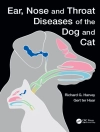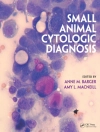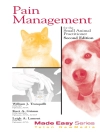This is the first definitive textbook on veterinary communication, written specifically for students and veterinary professionals by a group of international experts. Communication is a core clinical skill, and is now taught as a compulsory part of most veterinary degree courses. Good communication is crucial to the veterinarian-client-patient relationship, to patient health and ultimately to the success of any veterinary business.
The book covers all the key areas of communication including: the basic framework for the veterinary consultation; professional, ethical and legal aspects; communication with clients and colleagues; and coping with end-of-life and other difficult situations. It combines the most up-to-date research with a wealth of practical information, such as:
- Real-life case studies to help you apply your learning to real scenarios
- Simple step-by-step guidelines showing you how to deal with specific situations
- Examples of written resources you can use in practice
This valuable textbook has been written and edited by a carefully chosen group of specialists, comprising veterinary communication lecturers, veterinary practitioners, training managers and counsellors.
Spis treści
Contributors vii
Foreword ix
Acknowledgements xi
Introduction xiii
Chapter 1 Basic communication skills 1
Mary Kirwan
Introduction 1
Background and origins 1
The importance of communication 2
Definition of key terms 3
Models of communication 4
Verbal and non-verbal communication 7
Listening 15
The cultural context of communication 21
Summary 22
References 22
Chapter 2 A framework for the veterinary consultation 25
Alan Radford
Introduction 25
A guide to the veterinary consultation based on the Calgary–Cambridge observation guide 27
The physical examination 37
Closing the consultation 37
Summary 38
References 38
Chapter 3 Professional, ethical and legal aspects of communication 39
Carol Gray
Introduction 39
Communicating professionalism 39
Gathering information from clients 41
Giving information to clients 42
Informed consent 47
References 59
Chapter 4 Compassionate communication: working with grief 62
Susan Elizabeth Dawson
Introduction 62
The HCAB 63
Review of quality-of-life indicators 93
Setting up and running continuing care clinics 95
PET loss support groups 96
CPD opportunities 97
Resources and useful websites 97
References 98
Chapter 5 Dealing with difficult situations 100
Carol Gray and Jenny Moffett
Introduction 100
The use of veterinary communication skills at the end-of-life 100
A seven-step approach to communication at the end-of-life 102
Euthanasia – before, during and after 105
Welfare concerns 109
Informed clients 110
Communicating cost 112
Dealing with anger 115
Communication of mistakes 118
References 122
Chapter 6 Communicating with colleagues 127
Geoff Little
Introduction 127
The team and its leader 128
Induction schemes and mentoring 131
Appraisals 132
Exit interview 133
Delegation 134
Standard operating procedures 136
Staff suggestion scheme 139
Practice meetings 142
Reporting structure 144
Rotas 145
Interpractice communication 145
References 147
Chapter 7 Communicating with a wider audience 149
Jenny Moffett
Public speaking for beginners 149
Veterinary medicine and the media – a meeting of two worlds 155
References 166
Chapter 8 Communication and self-care in the veterinaryprofession 168
Communication, stress and the individual 168
Martina A. Kinsella
The first step to inner freedom 169
Moving from victim to victor 170
Implementing change 171
Learning assertiveness skills and becoming an assertive individual 173
Beyond words: communication, social relationship and health 176
David Bartram
The disclosure phenomenon 177
Importance of social relationships 180
The role of telephone support helplines 183
Summary and conclusions 185
Acknowledgements 185
References (Communication, stress and the individual) 185
Further reading (Communication, stress and the individual) 186
References (Beyond words: communication, social relationships and health) 186
Index 190
O autorze
Carol Gray is a Lecturer in Veterinary Communication Skills at the University of Liverpool, and has been instrumental in the introduction of communication skills training to UK veterinary undergraduates. She is also a Fellow of the Higher Education Academy, a Registered Practitioner with the HE Academy, UK, and is a member of the LIVE team (RVC Centre for Excellence in Veterinary Education).
Jenny Moffett is Director of Communications at Ross University of Veterinary Medicine, St. Kitts. She is a past editor of the Irish Veterinary Journal and a freelance veterinary journalist. She holds a veterinary degree from the Royal Veterinary College, London, a Master’s in Science Communication from Dublin City University and a Diploma in Marketing Communications from the Communications & Management Institute, Dublin.












